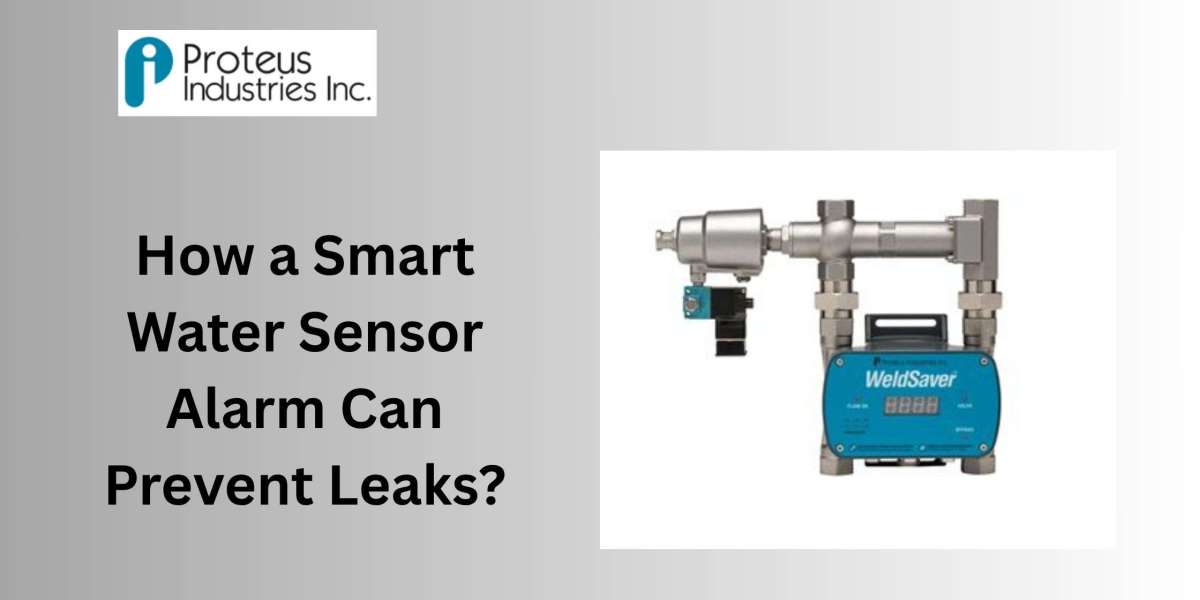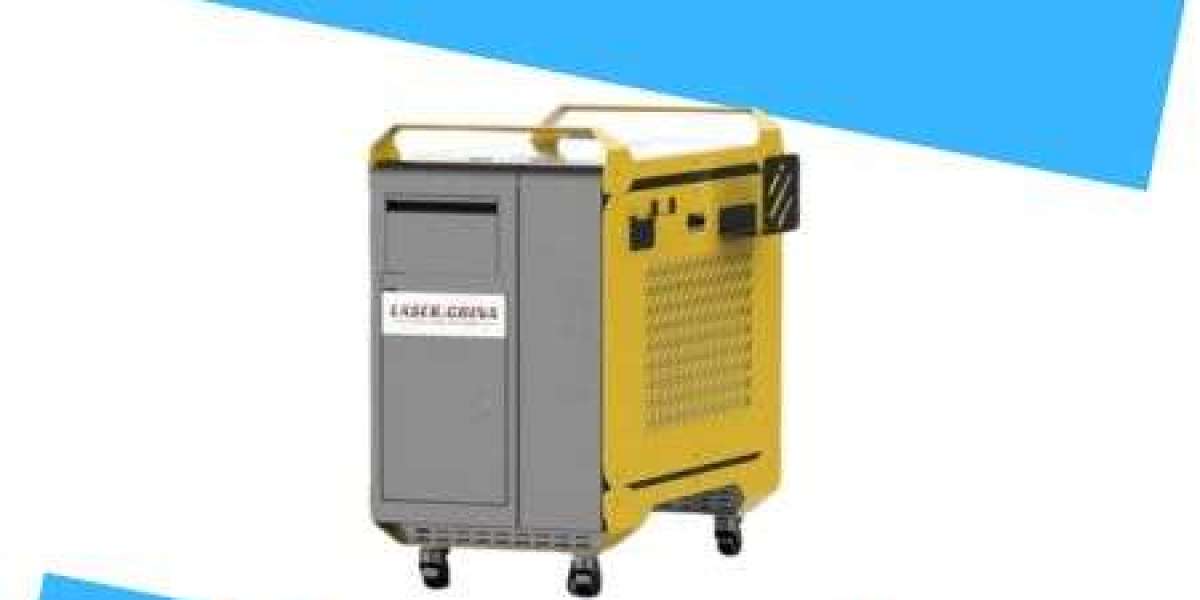Water leaks in industrial facilities can cause thousands of dollars in damage, leading to structural issues, equipment failure, and increased operational costs. Whether its a burst pipe in a coolant system or a slow drip in a robotic weld cell, early detection is critical. Enter the smart water sensor alarm, a modern solution for preventing water damage before it becomes a costly disruption. These devices are designed to detect moisture and alert maintenance teams instantly via integrated smart systems. In this article, well explore how smart water sensor alarms work, the most common causes of industrial leaks, and how these advanced devices help protect manufacturing and robotic welding setups from water-related damage.
What Is a Smart Water Sensor Alarm?
A smart water sensor alarm is a compact, network-enabled device that detects the presence of water or moisture and sends real-time alerts through industrial automation systems. It consists of a water-sensitive sensor, a communication module, and an audible or visual alarm system. Unlike traditional alarms, smart versions integrate seamlessly with industrial networks, offering real-time monitoring and automated responses. These alarms are typically installed in high-risk zones such as robotic weld cells, coolant systems, and fluid-handling stations. In industrial applications, they play a critical role in ensuring machinery remains dry and protected against coolant leaks, mechanical faults, or system malfunctions that can lead to unscheduled downtime.
Common Causes of Industrial Water Leaks
Industrial water leaks can originate from a variety of sources. Corroded or burst pipes in coolant lines are common culprits. Machinery such as robotic welding systems, chillers, and fluid reservoirs may develop hose or valve failures that go unnoticed without proper monitoring and maintenance. Poorly sealed pipe joints and worn-out connectors can also contribute to the formation of leaks. In certain scenarios, process fluid overflows or system backpressure may result in unintended leaks. Regardless of the source, undetected leaks in an industrial setting can lead to extensive equipment damage and production halts. Installing a smart water sensor alarm in strategic locations acts as a critical early warning system, allowing teams to act swiftly and minimise operational losses.
How Smart Water Sensor Alarms Detect Leaks?
Smart water sensor alarms rely on moisture detection technology, typically using conductive metal contacts that trigger an alert when water bridges the circuit. Once water is detected, the system sends an alert to supervisory control systems or via local visual/audible alarms. Advanced models integrate with automation protocols such as EtherNet/IP and PROFINET, enabling seamless communication with PLCs and robotic controllers. In robotic welding environments, devices like the WeldSaver utilise graphical user interfaces (GUIs) and local displays to visually represent coolant flow, detect anomalies, and initiate shutdown protocols. These smart alarms provide real-time monitoring and are crucial for safeguarding precision equipment in high-paced production environments.
How Do They Help Prevent Damage Before It Happens?
Smart water sensor alarms help prevent industrial damage by detecting leaks at the earliest possible stage. They deliver instant alerts to automation systems, enabling maintenance teams to take action before coolant or water causes equipment failure. Many advanced systems feature automatic shutoff valves that shut off fluid flow upon detecting a leak. In robotic welding setups, WeldSaver devices integrate eVac Coolant Retraction Modules, which redirect coolant flow during cap changes or cap loss, preventing spills and contamination. These systems ensure round-the-clock leak monitoring, even when personnel are not present, helping reduce scrap, protect assets, and maintain operational efficiency in demanding manufacturing environments.
Benefits of Using Smart Water Sensor Alarms
The advantages of using a smart water sensor alarm in industrial environments are substantial. These systems provide real-time leak detection, reduce downtime, and protect high-value machinery from fluid-related failures. By identifying issues early, they also help lower repair costs and reduce waste. In facilities where robotic welding is common, smart alarms like WeldSaver enable higher throughput and improved safety. Features such as IP65-rated enclosures, intuitive GUIs, and robust automation compatibility make these alarms ideal for integration into modern industrial workflows. By automating leak response, these alarms contribute to streamlined operations and ensure the longevity of equipment under continuous use.
Ideal Places to Install Smart Water Sensors
To maximise industrial protection, smart water sensor alarms should be installed in areas most prone to fluid leaks. This includes coolant supply lines, robotic weld stations, fluid reservoirs, HVAC systems, and sump pump areas. In welding environments, WeldSaver systems are especially effective near cap changers, where their eVac modules redirect coolant flow during tool changes, keeping equipment dry. Installing these alarms near critical machinery ensures rapid detection and immediate action to prevent damage. Selecting alarms with wide-area detection and automation-ready connectivity enhances safety and performance across manufacturing setups, fluid management zones, and high-pressure systems.
Tips for Choosing the Right Smart Water Alarm
When selecting a smart water sensor alarm for industrial use, prioritise features such as real-time monitoring, automation protocol compatibility, and robust environmental protection. Look for systems that support Ethernet/IP or PROFINET for seamless integration of PLCs and robots. Battery backup, high-sensitivity sensors, and audible/visual indicators enhance reliability. Products like WeldSaver offer weld-cell-hardened durability and graphical monitoring via browser-enabled GUIs, making them ideal for demanding operations. Consider customisation options, such as firmware tailored to specific robots or cap change sequences. Ensure the alarm system is scalable and supports detailed condition monitoring to match your facilitys operational parameters and equipment needs.
Conclusion
Smart water sensor alarms are essential tools for preventing water-related damage in industrial environments. These systems offer real-time monitoring, early leak detection, and automated responses to minimise downtime and prolong equipment lifespan. In advanced manufacturing setups, solutions like WeldSaver provide seamless integration with robots and controllers, eVac coolant management, and browser-based GUIs for intuitive control. By investing in a robust leak detection system, industrial facilities can enhance productivity, maintain safety, and protect high-value assets from unexpected failures. Dont wait for costly damageequip your systems today with intelligent leak detection solutions designed for the demands of modern industry.














